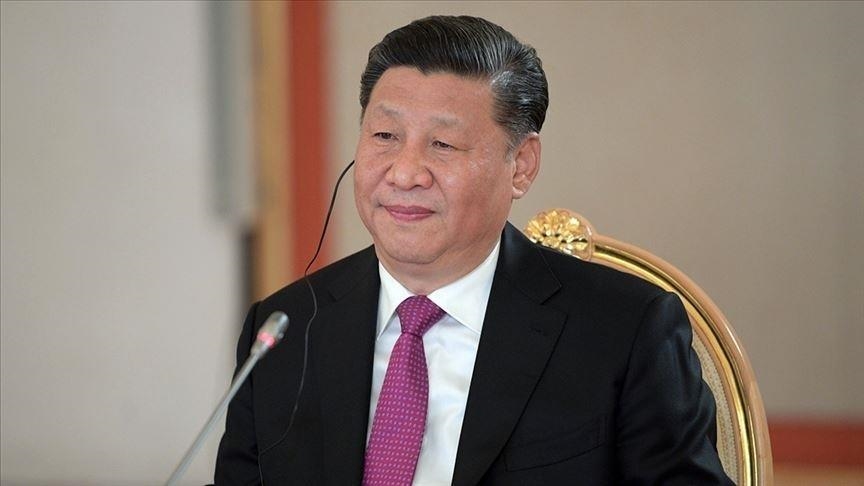ISTANBUL
Urging balance development and security, China’s newly reelected President Xi Jinping on Monday stressed the need for safeguarding national sovereignty, security and development interests.
“Security is the bedrock of development, while stability is a prerequisite for prosperity,” Xi told the closing meeting of the first of the two sessions of 14th National People’s Congress (NPC), the national legislature of China.
The president, who called for an holistic approach to national security, underscored the need for “safeguarding national security, enhancing public safety governance, improving the social governance system, and safeguarding China’s new development pattern with a new security architecture.”
Xi was reelected Chinese president for third time in a norm-busting development last week.
Addressing the national legislature, the 69-year-old leader “demanded efforts to advance the modernization of national defense and armed forces on all fronts, and build the People’s (Republic of China’s) armed forces into a ‘Great Wall of steel’ that is capable of effectively safeguarding national sovereignty, security and development interests.”
Doubling down on the Communist Party of China’s aim for unification between Taiwan and mainland China, Xi emphasized the “need to adhere to the one-China principle and the 1992 Consensus, actively promoting the peaceful development of cross-Strait relations, resolutely opposing external interference and ‘Taiwan independence’ separatist activities, and firmly advancing the process of national reunification.”
Taiwan, which China calls its “breakaway province,” however, has insisted on its independence since 1949.
As Xi reshuffled his Cabinet, with a new premier and new defense minister, he stressed the importance of “making solid efforts in advancing the practice of ‘One Country, Two Systems’ and the cause of national reunification” viz-a-viz Hong Kong and Macao.
Premier Li says 5% growth ‘not easy’
Addressing his maiden news conference, Chinese Premier Li Qiang called for “redoubled efforts” to achieve a target of 5% gross domestic product growth this year, state media reported.
“To achieve the 2023 GDP growth target of around 5% on the current high base of China’s economic output is not an easy task,” Li told media in Beijing after the closing session of the NPC.
At the outset of the NPC opening early this month, Beijing set a GDP target for 2023 at around 5% after missing its goal last year due to the economic fallout from its now-ended zero-COVID policy.
Li, 63, said the “institutional strength is one of the advantages for China’s economic development” as the government will introduce policies to stimulate demand and investment.
The NPC approved Li’s elevation to premier’s post on Sunday.
He said: “China’s economic performance over the first two months of 2023 has shown that the economy is stabilizing and picking up again.”
Defending China’s COVID-19 policy, Li said decoupling between China and the US was just a “hype.”
The first session of the 14th NPC concluded on Monday, which saw 2,977 deputies voting resolutions on the government work report, implementation of the national economic and social development plan in 2022 and the plan for 2023, and on the implementation of the central and local budgets in 2022 and the budgets for 2023, according to Xinhua News Agency.
“They adopted resolutions on the work reports of the 13th NPC Standing Committee, the Supreme People’s Court and the Supreme People’s Procuratorate, as well as a revision to the Legislation Law,” it added.

